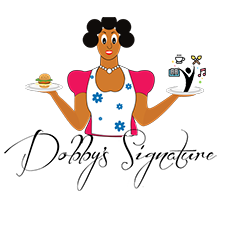The kitchen is the heart of any home. It’s where people gather, the place where nourishment, the anticipation of delicious meals, and the sharing of the day’s news come together. It’s good smells, family traditions, and the bustle of everyday activity. There’s a reason why guests tend to end up in the kitchen at parties according to netbet. People used to gather around a fire now, the kitchen is the place to congregate, eat, and bond.
For all those benefits, your kitchen can also affect your health in a negative way. Here’s what to look out for, plus a few easy changes you can make to avoid falling into these traps.
- Wash your hands in warm, soapy water
Wash your hands in warm soapy water before and after preparing food. This is one of the most important healthy kitchen tips.
- Clean Kitchen surfaces after every stage of preparing your recipe.
The next healthy kitchen tip that makes it easier to eat healthily is, Try to ‘clean as you go’. This is to prevent cross-contamination as raw meat, poultry, fish, eggs and many other raw foods are the most common sources of germs.
- Always use a separate cutting board for raw and cooked food.
The juice from raw meat contains harmful bacteria that can make one very ill. If possible, avoid wooden chopping board which over time will have many small cuts or scratches where bacteria thrives in. Even a very tiny opening on the surface of a cutting board can harbour more bacteria than you like to think about.
- Wash fruit and vegetables thoroughly before preparing.
Healthy Kitchen Tips That Make It Easier To Eat Healthy number 4 is; Scrub fruits and veggies with a brush and cut away any bruised or damaged parts of the food as bacteria thrive in these areas.
- When cleaning cooking utensils, use the right sponge to clean according to the materials.
Different types of utensils are used when cooking – some are made of ceramics, while others are made of glass or plastic. Always use the right sponge that is specifically catered to clean that category of utensils to effectively remove grit and grease while avoiding scratches.
- When washing utensils, make sure every part is washed.
Do not forget to wash the bottom of the plates or the handle of the spoon and fork. They are not as clean as you think.
- Clean the sponge after every wash.
The sponges and brushes which are used to wash utensils grow bacteria easily, so it is important to take extra care of them. Wash the sponges with plain clean water thoroughly, squeeze the excess water and leave them to dry before further use.
- Use different cloths for different sections of your kitchen.
Never use a cloth that is for cleaning kitchen surfaces for wiping dry dishes.
- Keep your kitchen surfaces clean.
Wipe down countertops with an antibacterial solution or sponge and paper towels to keep bacteria at bay.
- Never let water sit, whether spilt on the counter, the floor, under the refrigerator or simply is left from dishes stacked on the counter after rinsing.
Water can become a breeding ground for bacteria, especially if other substances such as dust are present.
- Keep soap bars as dry as possible to avoid bacteria growth
Or use liquid soap in a dispenser.
- Do a ‘big’ clean of fridges, freezes, cupboards and surfaces at least once a week.
The above locations are prime spots for bacteria breeding if large quantities of food and drinks are stored. If you don’t remember any of our other healthy kitchen tips, this is the one to remember!
- Do not submerge hot pans in cold water or cold pans in hot water.
Lukewarm water is best for cleaning non-stick pans. Place a paper towel in a pan quarter-filled with water overnight to remove the grease.






